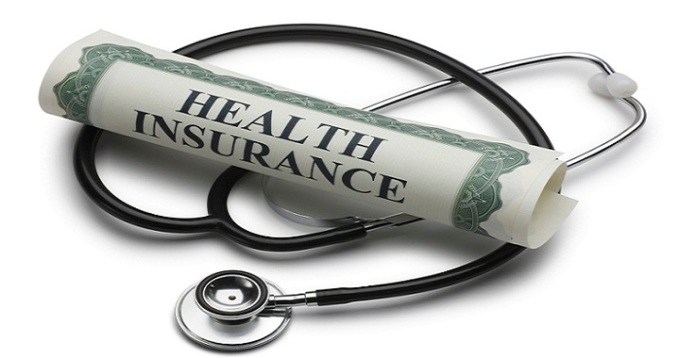Ken research announced its recent report on, “Personal Accident and Health Insurance in Malaysia, Key Trends and Opportunities to 2020 “ Report provides a detailed outlook by product category and a comparison of the Malaysian insurance industry with its regional counterparts. It provides key performance indicators such as written premium, incurred loss, loss ratio, commissions and expenses, combined ratio, total assets, total investment income and retentions during the review period (2011-2015) and forecast period (2015-2020). The report also analyses distribution channels operating in the segment, gives a comprehensive overview of the Malaysian economy and demographics, and provides detailed information on the competitive landscape in the country. The report brings together research, modelling and analysis expertise, giving insurers access to information on segment dynamics and competitive advantages, and profiles of insurers operating in the country. The report also includes details of insurance regulations, and recent changes in the regulatory structure.

General insurance is typically defined as any insurance that is not determined to be life insurance. General insurance or non-life insurance policies include personal accident and health insurance. The Malaysian personal accident and health insurance segment accounted for a 4.2% of the industry's direct written premium in 2015. The share of the insurance industry’s written premiums in 2012 was the lowest share of all the segments. Changing lifestyle patterns and the prevalence of diseases such as diabetes, respiratory disorders and other critical illnesses led to a rise in healthcare expenditure, which is generating a demand for health insurance. The threat of cancer, diabetes and respiratory disorders has encouraged personal accident and health insurers to expand their product portfolios. Rising levels of healthcare expenditure, increasing employment rates and industrial growth drove growth in the segment during the review period.
The Malaysian healthcare system comprises public and private healthcare services and the aging population is expected to drive the segment over the forecast period, due to an increase in demand for cover. The personal accident and health segment is moderately concentrated, with the 10 leading insurers collectively accounting for more than sixty percent of premiums in 2016. The costs associated with private healthcare exclude participation from lower income demographics. However, with industrial growth, positive employment opportunities and rising GDP, the nation’s middle class population is expected to increase over the forecast period and drive growth in the personal accident and health segment.
Rising consumer healthcare expenditure and limitations of public healthcare system will provide new areas of growth. Changing lifestyle patterns and an increase in the prevalence of a number of common diseases led to a rise in consumer expenditure on private health insurance during the review period, with an increasing proportion of the country’s population opting for voluntary medical policies, some of which are provided by employers. The main reason behind the rise in healthcare expenditure can be attributed to the fact that consumers are inclined to avail private healthcare in order to receive a better quality service. Private healthcare is therefore gaining in popularity, despite the guarantee of care under the government’s public healthcare system. The government’s healthcare initiatives ensure health insurance for the foreign working population. However, the insufficient number of public healthcare centres and technological limitations encourage foreign workers to purchase private health insurance.
Rising life expectancy and aging population will, drive growth Increasing life expectancy was a key driver of growth in the personal accident and health segment during the review period. Life expectancy is used to calculate the premium to be paid by policyholders when purchasing a life and personal accident and health insurance policy. According to World Bank data, in 1960, the average life expectancy of a Malaysian male was 59.4 years, and for females, it was 60.3 years. In 2011, this figure reached 72.1 years for men and 76.5 years for women. Life expectancy is expected to increase further by the end of the forecast period. This trend indicates a need for insurers to provide medical plans to cover policyholders beyond the current life expectancy, which will contribute towards the growth of the personal accident and health segment.
The boost in medical insurance premiums this year is a direct result of higher healthcare costs, according to agents who have to bear the bad news to their clients. Calling for insurance companies to justify the increase with facts and figures, Namlifa president James Bong, said the pricier coverage would also hinder Bank Negara’s goal to achieve a 75% insurance penetration rate by 2020 and burden the public healthcare system.
The Malaysian personal accident and health insurance segment is highly competitive, and contains both domestic and foreign insurers. LIAM suggested all stakeholders, including the government, insurance companies, private hospitals and doctors, as well as consumers work together to address the higher costs. Leading companies include: Allianz General, Berjaya Sompo Insurance, Etiqa Insurance, Lonpac Insurance, MAA Assurance, MSIG Malaysia, Tokio Marine Insurance (Malaysia) and Uni. Asia General Insurance. Increasingly, we see companies are involving themselves in the social media space, and undergoing a re-branding to lifestyle and wellness companies, and not just a company that sells insurance. In addition, the increasing and unparalleled progress in technology allows insurers the chance to really reduce and simplify their offerings to the customer, with a handy approach allowing them the chance to connect and integrate themselves into the lives of customers instantly from anywhere. 2020 will be the times of change, and both insurers and operators alike need to be keenly aware of the changes they face from 2016 and beyond.
Key Topics Covered in the Report:
Non-life insurance industry
Global life insurance
Life insurance businesses
Insurance sector worldwide
Malaysia non- life insurance market research
Non-Life insurance sector trends Malaysia
Malaysia General insurance regulations
Health insurance market research Malaysia
Health insurance demand Malaysia
Personal Accident Insurance Malaysia
For more coverage click on the link below:
Related links:
Contact Us:
Ken Research
Ankur Gupta, Head Marketing & Communications
Ankur@kenresearch.com
+91-9015378249
Ken Research
Ankur Gupta, Head Marketing & Communications
Ankur@kenresearch.com
+91-9015378249

